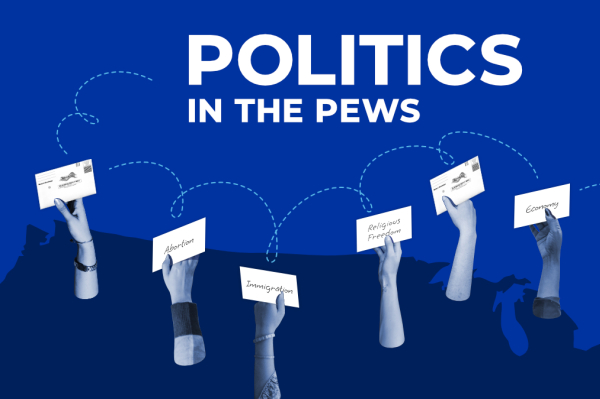U.N. Envoy to India Affirms Rise of Religious Intolerance
NEW DELHI – The United Nations' special rapporteur on freedom of religion or belief recently confirmed the rise of religious intolerance in India and said divisions based on religion must be halted now.
Asma Jahangir and her Geneva-based assistant, Michael Wiener, visited eight states and numerous cities in India since their nearly three-week long trip began on March 2. The last visit to India by a U.N. special rapporteur on freedom of religion or belief was in 1996.
Jahangir, who consulted heavily with the All India Christian Council (AICC), said she was gravely depressed by the persecution of minorities – especially the Christians and Muslims in the states of Gujarat and Orissa.
Citing the recent anti-Christian violence in Orissa – where more than 100 churches were burnt – and the Gujarat's 2002 riots that killed 2500 people, she said, "All these incidents continue to haunt the people affected by them and impunity emboldens forces of intolerance.
"Today there is a real risk that similar communal violence might happen again unless incitement to religious hatred and political exploitation of communal tensions are effectively prevented," added Jahangir.
The Pakistani rights activist severely castigated the slowness of government inquiries in previous religious clashes and blamed the law enforcement authorities for being reluctant to act against perpetuators of religious violence.
Furthermore, about the attacks against the Christian minority in Orissa last year, Jahangir said there were credible reports about members of the Christian community having alerted the authorities in advance.
In response to the comments made by the U.N. official at the Mar. 20 press conference in New Delhi, AICC President Dr. Joseph D'souza commented, "We are proud of India. It remains the world's largest democracy and the only officially secular country among the eight member countries of SAARC.
"However," he continued, "there are dark clouds on the horizon because violence against Christians and other minorities is on the rise. Authorities must arrest perpetrators and protect the innocent. Tragically, often perpetrators are protected and the innocent arrested."
"The right to embrace any religion and seek the Divine is the most basic of human rights," added AICC Secretary-General John Dayal in a statement last Friday. "It must not be hindered. But some radical elements, especially within hardline Hindu nationalist groups, are attacking minorities with impunity. Their spokespeople say that conversions must be stopped at any cost."
Giving an example, Dayal noted how about 100 churches and 700 Christian homes were burned during the attacks over this past Christmas in the eastern state of Orissa.
"At least four Christians were killed and many injured and abused," he recalled. "Yet the state government banned charitable and religious institutions from giving direct aid to victims and the aggressors still roam freely today."
Thanking the Indian government for graciously hosting the U.N. special rapporteur, Dr. Sam Paul, the AICC national secretary of public affairs, urged the government to heed to the advice and recommendations of the U.N. officials and to protect the religious freedom of all citizens.
Last week, the U.N. officials also submitted a memorandum on the violation of human rights minorities in the country.
The memorandum addressed the violation of human rights, civil rights and democratic rights of minorities including Muslims, Christians and tribals under the Narendra Modi-led BJP (Bharatiya Janata Party) regime.
Not only are Muslims, Christians and tribals being targeted by the establishment. They are scared of the BJP government, stated the memorandum.
The BJP has often been accused of participation in religious violence and using religiously sensitive issues for political advantages.
According to the political group, Bharat (India) is a Hindu nation and this definition cannot include Muslims or Christians.





















